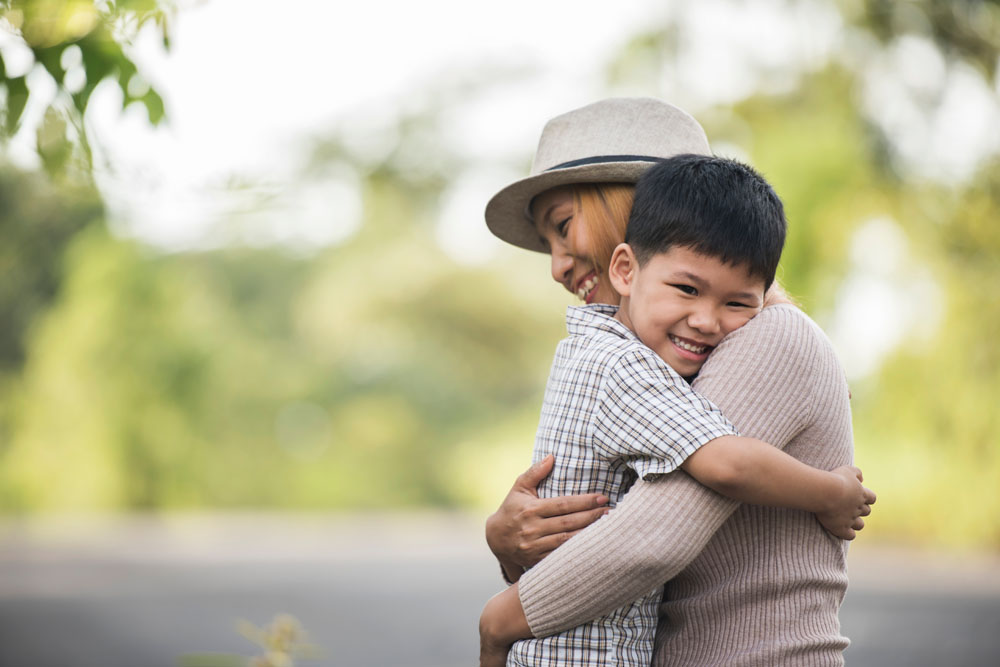By James E.R. Unsworth J.P. (Qual), Deputy Head of the Middle & Senior School & Tristan Johns, Year 5 Teacher at Australian International School Malaysia (AISM)

One of the greatest aspects of being a part of the AISM community is the holistic balance that is a natural part of everyday life on campus. As the school song says, “we learn together, play together, in harmony as one.” Achieving this balance at home, during our Continuity of Learning programme, can prove challenging. In this article, we will attempt to provide some hints and tips for achieving a similar balance at home.

My philosophy in life centres around balance, but in my role as Deputy Head of the Middle and Senior Schools, this can sometimes prove difficult, which I am sure that you can relate to. In our family, we strive everyday however, towards achieving the best possible balance. At the centre of this balance, in my household, is an emphasis on family. During the MCO, some of the values and some of the existing routines that we have long since had in place have really come in handy.
It may sound a little cliche, but one of the most important aspects, for us, is eating dinner together as a family around a table every night. This is not always possible for many, practically speaking, but we are fortunate enough to be able to make this a must for our family. Routines have sprung up around this also, which bring our family together. My daughters take joy in being the one to set the table or take the drinks orders. Years ago, we also started a process of creating balance in the conversation at the table by passing a sauce bottle from person to person, each taking their turn to speak on a particular topic. We no longer do the bottle routine, but I like to hope that the same respect for the speaker has been maintained.

We have also always had a ‘no technology at the table’ policy (whether at home or out) and treat this as a time for conversation and interaction. In general, tech/screen time is low on our list of leisure-time priorities. Whilst we are blessed to have a wealth of different leisure-time electronic devices, we just make the conscious choice to not use them often. Instead, we have a great collection of board games and card games and we have always made a point of playing these together as a family. As a result, our children crave board game time. We have also invested heavily in Lego and once the children are hooked on Lego, this investment pays great dividends and this toy system is wonderful for developing 21st skills in children. Similarly, we have invested in books and have normalised reading as a leisure-time activity. ‘Old fashion’ play is also important to us and we have a box of costumes, a play supermarket, a doll's house and Play-Doh, to name a few. Another important element in our house are the musical instruments and playing these is a mandatory part of our daily routine. We also make photobooks of our adventures, every 18 months or so, and these are always out on the coffee table. As a family, we unashamedly dance and sing to music together, no videos, just music and at other times we do yoga or pilates together. The dining table often also becomes our artistic space, when we draw and paint together. Every evening our family routine concludes with prayers of thanks and acknowledgements of gratitude together. It is our experience that by engaging together with our children (and each other) in so many non-screen based activities, as well as sometimes modelling non-screen time fun, we have created an environment where screen-based activities are just one of many options.
Whilst we have normalised this in our household, from the time that our children were born, it is never too late to start. You may get push-back at first, but each time fun is had and, importantly, interpersonal engagement is experienced, the craving for such things will grow and soon screen time might not be the strongly sought after activity that it may currently be.
During the MCO, these existing parts of our family life have been enabled more often and so we have savoured and appreciated the extra time together. It was interesting in the first weeks, as many of these aspects became daily parts of life, that our children came up with a roster of daily ‘monitors’ for the key portfolios. Each day of the MCO has seen the four of us allocated to daily portfolios on a rotating basis: We have daily monitors for sport, drinks, family movie and board games and a graphic display of this roster is visible on the fridge. We have played our favourite board games many times and we have learned new card games. We put in and received an online order for further sporting equipment, to broaden our selection to include badminton, boules and archery. The girls have also taken great joy in spending small allocated budgets on Lego from online shops and building these models when they arrived. For our daily screen time, we have focussed on family movie time and have rewatched all nine Star Wars films together over the weeks, as well as a number of the free online COVID-19 concerts.
So, in sum, my tips for digital detox during the MCO and beyond are:
- Do things together;
- Institute shared routines;
- Encourage conversation, particularly over meals;
- Play boardgames, card games and puzzles;
- Do physical activities together;
- Have music (audio only) playing in the house;
- Invest in toys and books that stimulate the mind and nurture creativity;
- Write, paint, draw;
- Let screentime activities (outside of work and school commitments) be shared family activities;
- Remind each other how lucky you are to be: where you are; who you are; and, with who you are with.
Recently, Mr Johns, from the Junior School, put together a ‘AISM ICT Guide to Digital Wellbeing’ for staff. This is an amazing document that has proven very popular with staff. Mr Johns has kindly agreed to contribute to this article and below are some additional tips from him:

If you had told me in January that just three months later, I’d be confined to my apartment for almost two months, there is absolutely no way that I would have believed you. However, fast-forward to today and that has been the daily reality for most people across the globe since mid-March. While the challenges of working online vary for different industries and sectors, the principles for maintaining good digital wellness remain constant.
The AISM guide to digital wellbeing aims to prioritise community wellness by providing simple tips that can be implemented at home to help maintain digital balance while the MCO remains in place.
By incorporating some of the following suggestions into your daily routine while you work from home, it is our hope that you might lessen your digital dependency and increase positivity throughout this latest phase of the MCO.
CONTROL YOUR TIME
It can be hard to know when to take a break in this new online working environment. We seem to be much more accountable now, then ever before. The constant barrage of emails and online video calls can seem endless. So, why not create a daily schedule that you can stick to? It should include when you will wake up in the morning; when you will take breaks throughout the day and when you will finish work at night. Make sure to schedule uncompromisable break times too. This means that you are offline completely (no emails; phone calls; and even work related chit-chat). As little as 15 minutes each morning and afternoon can help you to regain control of your time.
CHUNK YOUR RESPONSE TIMES THROUGHOUT THE DAY
Instead of responding haphazardly to client requests immediately, set aside periods of time throughout the day to specifically respond to emails and phone calls. Try to make this time as interruption-free as possible so that you aren’t being overwhelmed by other tasks.
SPREAD YOUR WINGS
While it may not sound like much, working in different settings or environments within your home can help to reinvigorate you throughout the day. Get creative! Use different spaces, places and things in your living environment to change it up. For example, I like to stack small shoe boxes or books on top of one another on my kitchen table and use it from time to time to work standing up. It’s great to ensure that you aren’t sitting all day too. Also, just simply moving about your house and working in different rooms throughout the day can have an impact on your approach to working as well.
COFFEE CUT BACK!
While the thought of living without coffee is unimaginable for some; coffee can increase levels of stress and anxiety when over consumed. The recommended adult intake for coffee per day is just 4 cups. So, try to set limits on your daily caffeine intake to reduce any feelings of anxiety or stress.
TURN OFF THE NEWS
News is everywhere. On televisions and phones. We can even download the latest data and statistics directly to our wrist watches. We are constantly consuming new information all the time and much of it is negative. If you're feeling overwhelmed with the constant chatter of newsstreams and need to drown out the noise, simply switch it off.
DRESS TO IMPRESS
Make a conscious effort to dress professionally each day (even when no one is looking). Dressing professionally can make a big impact on how you approach the day. Just remember to change out of those clothes at the end of the day to signal ‘work done’.
GET MOVING
Increased screen time means that it’s harder to take a break from your device. However, it’s really important that you prioritise moving throughout the day. Set an alarm every 30 minutes and when it sounds, get up and move around your apartment.
Stay safe, savour your time and enjoy your digital detox!
Take part in AISM’s Virtual Open Week from 1 to 5 June 2020 to have a sneak preview into life at AISM and discover more about the School’s impressive facilities, extensive curriculum and how they incorporate mindfulness in school. Join in the diversified programme of presentations and ask questions about studying at Australian International School Malaysia. Our Principal (Liam King) and Heads of Schools (Michelle Chaplin and Ivan McLean) will happily respond to all your enquiries
Register now at http://www.aism.edu.my/admissions/virtual-open-week.















![[Maahad Tahfiz Negeri Pahang] Asia Youth International Model United Nations](https://mint-edm.sgp1.digitaloceanspaces.com/production/qKffTsfZisDxO4b6kcejusAA7mWWgL.jpg)





















